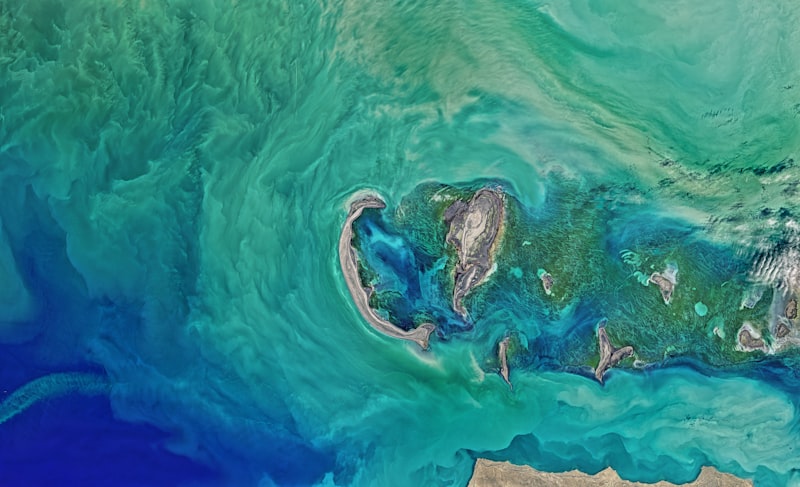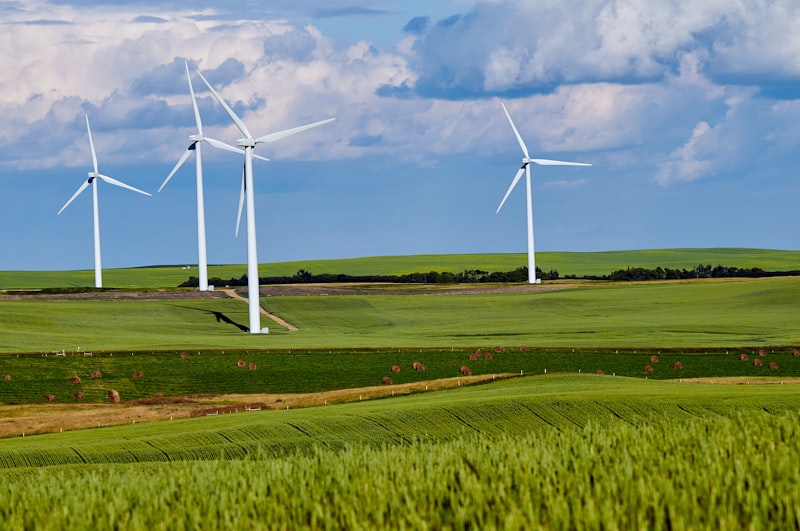In the vast realm of science fiction, alternate histories stand out as captivating narratives that explore worlds shaped by divergent past events. These stories envision what our world could be if historical moments unfolded differently, posing intriguing “what if” scenarios that challenge our understanding of reality.
Imagine a universe where World War II had a different outcome, leading to a technologically advanced society ruled by a different global power. Authors like Philip K. Dick and Philip Roth have masterfully crafted such alternate history tales, delving into themes of identity, politics, and human nature against the backdrop of altered timelines.

One such acclaimed work is Philip K. Dick’s “The Man in the High Castle,” where the Axis Powers triumphed in World War II, dividing the United States into Japanese and Nazi-controlled territories. This chilling narrative explores the consequences of totalitarian rule and the resilience of the human spirit in a world drastically reshaped by historical twists.
Alternatively, Philip Roth’s “The Plot Against America” reimagines America during World War II, depicting Charles Lindbergh’s presidency and his anti-Semitic policies, turning the country towards isolationism and intolerance. Roth’s narrative skillfully blends personal drama with a broader political landscape, highlighting how individual lives are intertwined with larger historical forces.
These stories not only entertain but also provoke thought about the fragility of history and the profound impact of pivotal moments. They challenge readers to consider how different decisions could have shaped society and altered the course of human progress.
In essence, sci-fi stories with alternate histories serve as thought experiments that invite us to question our assumptions about the past and present. By exploring parallel worlds and divergent paths, these narratives offer a mirror to our own reality, prompting reflection on the complexities of history and the possibilities that lie beyond our conventional understanding.
Exploring Parallel Realities: Sci-Fi Tales of Alternate Histories
In these parallel realities, anything is possible. Authors weave intricate narratives where pivotal moments in history unfold differently, leading to vastly altered present-day scenarios. It’s like looking through a kaleidoscope of possibilities, each twist and turn revealing a new facet of what could have been.
Take, for instance, a story where World War II ended differently. What if technology advanced at a different pace, or society developed in unexpected ways? These narratives not only entertain but also provoke thought about our own world and the paths we’ve taken.

In exploring these alternate histories, authors often delve deep into the consequences of different choices. They ask questions that challenge our understanding of cause and effect. What if a single decision changed the course of human civilization? How would it shape culture, politics, and everyday life?
These tales are not just flights of fancy but reflections on our own reality. They invite us to consider how fragile our current existence might be and how profoundly different our world could have been. It’s a journey through imagination and speculation, where each story invites us to ponder the boundaries of what is possible.
Parallel realities in sci-fi are not merely about escapism; they’re about stretching the limits of our imagination and exploring the infinite possibilities of existence. They remind us that history is a tapestry of choices, and each thread could have led us down a different path. So, as you immerse yourself in these alternate histories, ask yourself: what if?
Diverging Paths: Top Sci-Fi Novels That Rewrite History
In the realm of science fiction literature, the exploration of alternative histories has long captivated readers seeking narratives that challenge the boundaries of reality. Imagine a world where historical events unfolded differently, where pivotal moments took unexpected turns. This is precisely the terrain that top sci-fi novels exploring alternate histories traverse with masterful storytelling.
These novels are more than mere flights of fancy; they are intricate tapestries woven with threads of speculation and imagination. Take, for instance, Philip K. Dick’s “The Man in the High Castle,” which envisions a post-World War II world where the Axis powers emerged victorious. Through Dick’s lens, readers confront a hauntingly plausible reality where the United States is divided between Nazi Germany and Imperial Japan.
Or consider Harry Turtledove’s “Guns of the South,” a gripping saga that imagines a Confederate victory in the American Civil War, bolstered by time-traveling South African white supremacists armed with AK-47 rifles. Turtledove’s narrative skillfully blends historical figures with speculative twists, posing profound questions about the nature of power and the course of human history.
Meanwhile, Ursula K. Le Guin’s “The Lathe of Heaven” delves into the consequences of altering reality through dreams, where a man’s nocturnal visions reshape the fabric of existence itself. Le Guin’s exploration of ethical dilemmas and unintended consequences resonates deeply, challenging readers to ponder the ethical implications of manipulating history.
These novels not only entertain but also provoke thought, inviting readers to contemplate how different choices could have led to vastly divergent paths in our shared human journey. They remind us that history is not a fixed entity but a tapestry of possibilities, shaped by decisions both monumental and mundane.
Exploring these alternate histories through the lens of science fiction allows us to confront our own biases and assumptions about the past, while also sparking imagination about the futures that might have been. As readers immerse themselves in these narratives, they are invited to question the inevitability of historical outcomes and consider the fragile threads that weave the fabric of our reality.
What If? Sci-Fi’s Fascination with Alternate History Narratives
In the realm of alternate history fiction, writers boldly reshape pivotal moments from our past. They meticulously craft narratives that explore what could have happened if key events had unfolded differently. This genre isn’t just about rewriting history for the sake of it; it’s about exploring the consequences of those changes on society, culture, and even the individual lives of people.
Take, for instance, Philip K. Dick’s novel “The Man in the High Castle,” which imagines a world where the Axis powers won World War II. This alternate reality depicts a divided United States under Nazi and Japanese control, showcasing the chilling plausibility of an alternate outcome to a globally transformative event.
What makes alternate history narratives so compelling is their ability to blend the familiar with the fantastical. They challenge readers to think critically about cause and effect, inviting them to consider how fragile historical events truly are and how easily they could have unfolded differently.
In contemporary science fiction, alternate history isn’t just a niche subgenre; it’s a playground for exploring complex ideas about power, identity, and the human condition. Authors like Ursula K. Le Guin and Harry Turtledove have masterfully navigated these speculative waters, offering readers rich tapestries of worlds that diverge from our own at critical junctures.

Moreover, alternate history isn’t confined to literature alone. It has permeated popular culture through films, television series, and even video games. Each medium offers its own unique twist on the genre, from the gritty realism of “The Man in the High Castle” TV adaptation to the strategic intricacies of games like “Civilization,” where players chart their own course through an alternate timeline.
Ultimately, science fiction’s fascination with alternate history narratives reminds us that our present reality is just one of countless possibilities. By exploring these imagined worlds, we gain a deeper appreciation for the complexities of history and the profound impact of pivotal moments.
Beyond the Timeline: Sci-Fi’s Best Alternate History Plots
Have you ever wondered what our world would look like if history took a different turn? Sci-fi writers have long explored this intriguing concept through alternate history plots, weaving narratives that blend reality with fiction in mind-bending ways.
Imagine a world where the Nazis won World War II or where dinosaurs still roam the Earth alongside humans. These are just a few examples of the countless alternate history scenarios that have captivated readers and viewers alike. What makes these plots so compelling is their ability to challenge our understanding of cause and effect, showcasing how pivotal moments in history could have led to vastly different outcomes.
One of the most celebrated examples of alternate history in sci-fi is Philip K. Dick’s novel “The Man in the High Castle,” which envisions a post-World War II world where Nazi Germany and Imperial Japan control different parts of the United States. This thought-provoking narrative not only explores the consequences of historical events but also delves into themes of resistance, identity, and the nature of power.

Another standout is Octavia Butler’s “Kindred,” where a modern African-American woman is transported back in time to the antebellum South. Through her eyes, readers experience the harsh realities of slavery while grappling with questions of ancestry and personal agency.
These stories resonate because they offer more than just escapism; they challenge us to consider how fragile history can be and how different choices might shape our present and future. By blending meticulous research with bold imagination, sci-fi authors create worlds that feel both familiar and profoundly alien, inviting readers to ponder the paths not taken and the possibilities that lie beyond the timeline.
Explore these alternate history plots and embark on a journey through time and imagination where the boundaries of reality are stretched, and the echoes of what could have been reverberate through the pages of some of sci-fi’s most unforgettable tales.
Frequently Asked Questions
How do alternate histories in sci-fi impact the genre’s storytelling?
Discover how alternate histories in sci-fi novels and films enrich storytelling by exploring plausible ‘what-if’ scenarios. These narratives challenge conventional timelines, offering unique perspectives on historical events, societies, and technologies, fostering thought-provoking debates and imaginative speculations.
Examples of popular sci-fi books featuring alternate histories?
Explore a collection of popular sci-fi books that delve into alternate histories, offering imaginative twists on historical events and their consequences. These novels blend speculative fiction with real-world events, presenting intriguing ‘what-if’ scenarios that challenge conventional timelines and perceptions of history.
What defines a sci-fi story with alternate histories?
Learn what defines a sci-fi story with alternate histories, exploring how these narratives diverge from known historical events, often exploring ‘what if’ scenarios to speculate on different outcomes. Such stories blend science fiction elements with altered historical trajectories, offering imaginative insights into how pivotal moments could reshape civilizations and technologies.
How do authors create alternate histories in science fiction?
Learn how authors craft alternate histories in science fiction by reimagining pivotal events or introducing speculative elements that diverge from our timeline. They blend historical research with creative speculation to construct plausible scenarios, exploring the consequences of different paths in history.
What are the benefits of exploring alternate histories in sci-fi?
Explore the benefits of alternate histories in sci-fi to uncover new perspectives on human nature, societal structures, and technological advancements. Delve into speculative scenarios that challenge conventional thinking and offer fresh insights into our present and future.



[…] Sci-Fi Stories with Alternate Histories […]
[…] Sci-Fi Stories with Alternate Histories […]
[…] Sci-Fi Stories with Alternate Histories […]
[…] Sci-Fi Stories with Alternate Histories […]
[…] Sci-Fi Stories with Alternate Histories […]
[…] Sci-Fi Stories with Alternate Histories […]
[…] Sci-Fi Stories with Alternate Histories […]
[…] Sci-Fi Stories with Alternate Histories […]
[…] Sci-Fi Stories with Alternate Histories […]
[…] Sci-Fi Stories with Alternate Histories […]
[…] Sci-Fi Stories with Alternate Histories […]
[…] Sci-Fi Stories with Alternate Histories […]
[…] Sci-Fi Stories with Alternate Histories […]